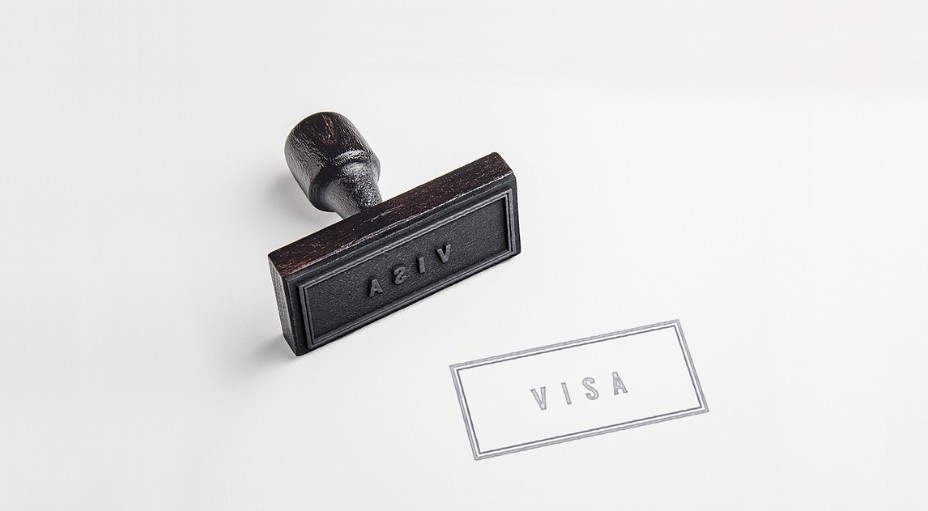The UK’s Skilled Worker visa has transformed the lives of thousands of professionals who have chosen to bring their skills to British shores. From NHS nurses and care workers to IT engineers and finance professionals, the visa provides a solid pathway to living and working in the UK.
However, one of the most misunderstood areas for visa holders is travel. Specifically: how long can I stay outside the UK with Skilled Worker visa without putting your status or future at risk?
This question is especially important for those planning to settle permanently in the UK. In this post, we break down everything you need to know, supported by real-life stories, actionable tips, and up-to-date insights based on UK immigration policy in 2025.
Understanding the Basics: What Is the Skilled Worker Visa?

Before we dive into time limits, let’s briefly review what the Skilled Worker visa is.
The Skilled Worker visa allows foreign nationals to live and work in the UK if they have a job offer from a licensed UK employer in an eligible occupation. This visa typically lasts up to five years and can be extended or lead to Indefinite Leave to Remain (ILR) and eventually British citizenship.
It’s a visa designed not just for temporary work, but often as a stepping stone toward permanent settlement.
Which brings us to the real issue: how absences from the UK affect your immigration journey.
How Long Can I Stay Outside the UK with Skilled Worker Visa?
There is no strict limit imposed by the Home Office on how much time a Skilled Worker visa holder can spend outside the UK during the visa period itself. You can travel for work, personal reasons, or even emergencies.
However, most migrants aim to stay in the UK permanently, and that’s where things get complicated.
If you plan to apply for Indefinite Leave to Remain (ILR), there are very specific rules you must follow, especially regarding absences from the UK.
The ILR Requirement: The 180-Day Rule
To qualify for ILR under the Skilled Worker route, you must have:
- Lived in the UK for five continuous years on a valid Skilled Worker visa.
- Not been absent from the UK for more than 180 days in any 12 months during those five years.
This 180-day threshold is the key figure you need to understand and manage carefully.
What Does “180 Days in Any 12 months” Really Mean?
It means that UK Visas and Immigration (UKVI) will look at each 12 months individually across your five-year stay and assess how many days you were absent from the UK during each period.
It’s not based on calendar years or financial years. It’s rolling, meaning every new date is assessed against the previous 12 months.
Here’s an example:
- If you travelled in January for 60 days, again in June for 90 days, and in November for 40 days, UKVI would calculate your total days absent between November of the previous year and November of the current year. If it exceeds 180 days, that period would break your continuous residency.
If you exceed the 180-day limit in any of those 12-month periods, your continuous residence is broken, and your five-year period resets.

Why Do These Rules Exist?
The Skilled Worker visa is designed to bring talent to the UK economy. The expectation is that individuals granted this visa will primarily live and work in the UK. Long absences may indicate that the individual is no longer making the UK their main home, which is why UKVI enforces the 180-day rule so strictly.
While the initial visa may remain valid if you travel extensively, it’s the path to settlement that gets affected.
Real-Life Cases and Consequences
Let’s look at a few real-world examples to illustrate how the 180-day rule plays out.
Case Study 1: Nimra, a Software Developer from Pakistan
Nimra moved to Manchester on a Skilled Worker visa in 2019. During the pandemic, her employer allowed remote work from abroad. She returned to Karachi for several months each year.
She assumed that since she was working full-time for her UK employer, her ILR application would not be affected.
However, when she applied for ILR in 2024, her application was refused. She had exceeded the 180-day limit in two different 12-month periods due to extended stays and multiple family events.
She now has to wait and complete five more years of continuous residence from her most recent return.
Case Study 2: Paul, an NHS Nurse from Zimbabwe
Paul travelled abroad regularly but made sure none of his trips exceeded 30 days. Over five years, his total absences never crossed the 180-day threshold in any 12 months.
He maintained a spreadsheet with travel records and collected documentation, such as boarding passes and NHS approval letters.
His ILR application was successful and approved within eight weeks.
What If You Go Over the Limit?
If your total absences exceed 180 days in a single 12-month period, your 5-year qualifying period for ILR resets.
This does not mean your visa is cancelled, but it means you must wait another five years of continuous residency before you can apply for settlement.
There are some exceptions, such as:
- Life-threatening medical conditions
- National emergencies
- Natural disasters
- Armed conflict
These exceptions are rare and must be well-documented with official evidence. UKVI will consider such cases at their discretion, and approvals are not guaranteed.
Can You Work Remotely from Another Country?
This has become a major issue post-pandemic, especially with more companies adopting remote-first policies.
In theory, your Skilled Worker visa allows you to work only for the UK-based sponsor who issued the Certificate of Sponsorship (CoS). You are expected to live and work primarily in the UK.
Occasional remote work from abroad may be accepted, especially if approved by your sponsor. However, extended remote work arrangements carry risks:
- You could be seen as no longer residing in the UK.
- You may exceed the 180-day limit for ILR.
- Your employer could breach sponsor obligations if they cannot demonstrate your physical presence in the UK.
Employers should have clear policies on remote working abroad, and visa holders should be aware of how long-term remote work could impact their immigration future.
Tips to Stay Compliant and Protect Your ILR Eligibility

- Keep a Detailed Travel Log
Record all trips abroad, including entry and exit dates, destinations, and reasons for travel. - Store Evidence
Save travel documents, boarding passes, and employer approvals for trips, especially if they are work-related. - Check Each Year’s Absences Separately
Don’t assume that spreading absences over a few years balances things out. Each 12-month period must stay within 180 days. - Avoid Unnecessary Long Trips
While short holidays or essential family visits are expected, avoid extended trips unless absolutely necessary. - Coordinate with Your Employer
Ensure your HR team is aware of your travel plans and can confirm your compliance with visa terms if questioned by UKVI. - Seek Legal Advice for Borderline Cases
If you’re close to or over the 180-day limit, consult a qualified immigration adviser before submitting your ILR application.
Summary: What You Can and Cannot Do
| Travel Scenario | Is It Allowed? | ILR Impact |
|---|---|---|
| Two-week holiday abroad | Yes | None |
| Three-month remote work from home country | Possibly | Risky |
| Accumulated 190 days outside UK in one year | Yes | ILR Reset |
| Emergency absence with medical evidence | Yes (with proof) | Considered case-by-case |
| Travelling back and forth monthly | Yes | Monitor closely to avoid exceeding 180 days |
Final Thoughts
Time abroad on a Skilled Worker visa is manageable, but it must be carefully tracked and documented—especially if you’re working toward permanent settlement in the UK.
Understanding and respecting the 180-day rule is essential to avoid disappointment, delays, or even rejection when applying for ILR. The visa gives you incredible opportunities, but it also carries responsibility. One overlooked detail—like an extended stay abroad—could set your life plans back by several years.
Being proactive is key. Plan your travel wisely, keep records, and if needed, seek professional guidance.

Leave a Reply